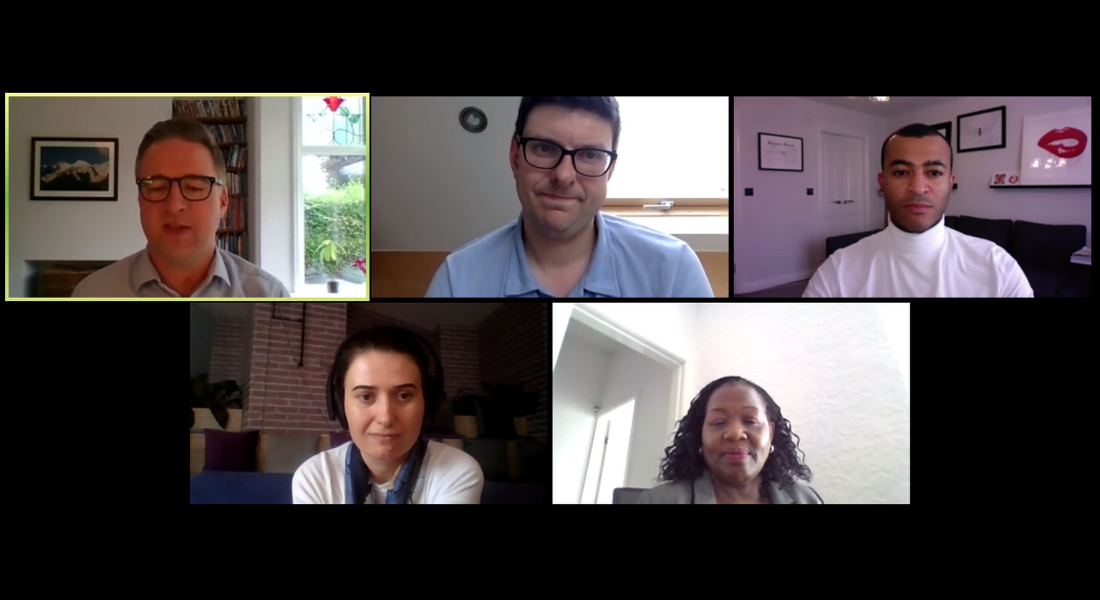The day before we hosted our first virtual Honest Talks, I had a nightmare that Zoom crashed and I couldn’t reach the keyboard to reboot. While, thankfully, this vision did not become a reality, hosting a virtual panel did throw up some surprise considerations and exposed which areas we couldn’t replicate from our in-person events.
If you’re considering going virtual, here are my quickfire tips for ensuring a smooth-running event:
Communication – at a time when we’re having to use email and instant messaging much more, it can be easy for things to get lost if you don’t find alternative ways to communicate.
- Connect with people pre-event. For me, part of the fun of planning events is meeting new people and popping out for a coffee to learn more about them before the event. It’s much harder to replicate right now but it’s still important to make that happen. I haven’t met any of our Honest Talks panelists from last week face-to-face but had phone and video calls with them ahead of the event to get to know them and their stories.
- Outline the format. You probably have a vision of how you want the event to run but do your panelists and audience know that? As well as briefing your panelists pre-event, spend a few minutes at the start of the event explaining to attendees what’s going to happen. Will they get the chance to ask questions (how and when)? How long will the session be? Is there an opportunity to follow up with people afterwards.
- Remind people! Don’t make a missed email the reason people didn’t join the event. We made sure we sent out a joining link 24 hours before the event and again, an hour before. In hindsight, I’d have also added it to the instructions on Eventbrite. Additionally, get a colleague to sign up so they can experience what your attendees will and feedback on communications in the run–up – including confirming they’ve received joining instructions, checked that the link works, etc.
Contingency planning – planning for the worst means you can quickly bounce back if things do fall down and there are some simple things you can do to ensure this.
- Do a test run. This is a great way to a) test you know how to use all the different features on whatever platform you’re using and b) critique the audience experience. I got six or seven of the Fourth Day team to jump on as panelists and audience members and played around with bringing people into the conversation, turning microphones on and off, posting in the Q&A and so on. This meant that, when it came to the real deal, we were fully up to speed.
- Get organised to avoid flapping later. When you don’t have the luxury of being in the same room as your panelists, make sure you have their numbers on a piece of paper in front of you or saved on your phone. This sounds basic but there’s nothing worse than trawling through emails when you need to ping someone a message in lightning speed.
- Prepare for the worst. At our last Honest Talks, I had an email written out and ready to send with instructions should the technology fail and people needed to rejoin. Again, you don’t want to have to waste time writing something or scrambling for email addresses so get this ready to go just in case.
While I loved our virtual event, I am itching to get back to our original format and catch up with everyone in person. If, like me, you are planning ahead, check out some of my favourite spots to host an event in Manchester plus a handy checklist for event management 101.
Share this:





